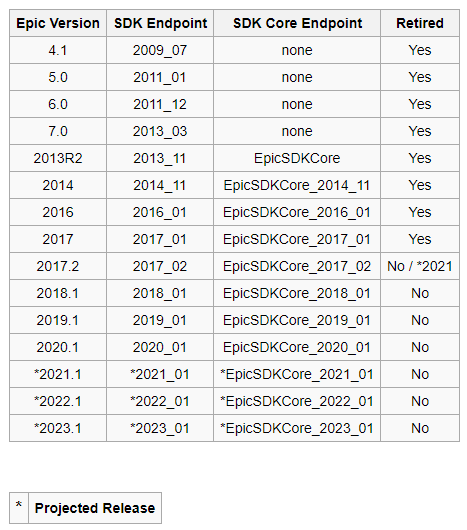Versioning | |
To reduce the cost of maintenance and to increase uptime. As new versions of Applied Epic and the Applied Epic SDK are released, the functionality will grow and change. In order to ensure that your integration applications occur no downtime when upgrading to the newer version of Epic, new versions of SDK will continue to contain the interfaces from the previously released versions. This means that when you upgrade to a new version of Epic and SDK, existing integration applications that utilize the older interfaces will continue to run without developer intervention. This is referred to as backwards compatibility. Each version of the Applied Epic SDK will be supported with backwards compatibility for the previous 3 versions of Epic SDK.
Epic SDK will introduce a new endpoint per new release of Epic while also removing the oldest endpoint available to always support a total of 4 versions. In some situations, the behavior of the existing program will differ slightly after upgrading. For example, some fields will be validated differently based on the validation behavior of the corresponding field in the new version of Epic. Also, existing programs that modify fields that have been removed in the new version of Epic will continue to run, but will discard the provided value for the removed field. In some situations ideal backwards compatibility will be impossible due to technical limitations or because of how the integration application was created. These technical limitations are listed in the Versioning Technical Guide section. Here you can also find information on how third party integration programs should be created in order to best take advantage of the backward compatibility.
Starting with Epic 2020.1 a new Restful SDK has been introduced. This SDK has no need for an endpoint, supports RESTful behavior and may not be subject to versioning.
More information can be found in the following documents.
